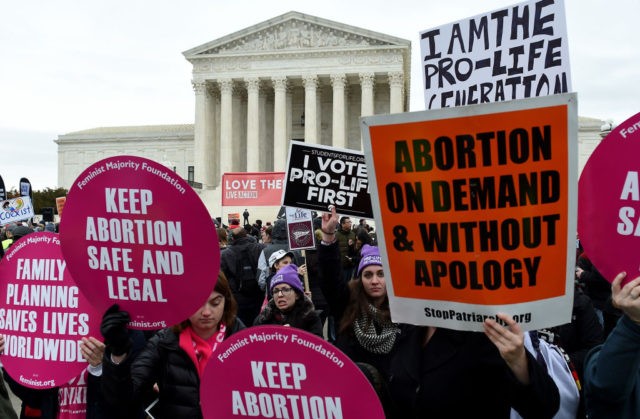The U.S. Supreme Court announced Monday that it will decide if state laws banning most abortions are unconstitutional, in a major case challenging new Mississippi abortion restrictions.
The petition filed at the Court asks “whether all pre-viability prohibitions on elective abortions are unconstitutional” in the U.S., posing the most significant challenge in decades to the right to abortion created by the Supreme Court in its 1973 Roe v. Wade decision.
The Supreme Court relisted this petition for conference more than 20 times. The Court wrestled since October on if it should take this case, and there were lesser questions they could have tackled, but in the end, they decided to take up the broadest version of the issue.
From the petition:
Mississippi’s Gestational Age Act brings into sharp focus the conflict between this Court’s suggestion that states cannot prohibit pre-viability abortions, Roe v. Wade…and the Court’s repeated admonition that states have legitimate interests “from the outset of the pregnancy in protecting the health of the mother and the life of the fetus which may become a child.”
Lawyers from the Mississippi attorney general’s office noted in the introduction to the petition that because of the conflict between this case and Roe v. Wade, “good reasons exist for the court to reevaluate its jurisprudence.”
Mississippi Attorney General Lynn Fitch recently appointed Scott Stewart, a former law clerk to Justice Clarence Thomas and former deputy assistant attorney general in the Civil Division of the U.S. Department of Justice in the Trump administration, as the state’s new solicitor general.
Most experts would expect either Fitch or Stewart to argue this high-profile case.
The case will be argued late this year, with a decision expected by June 2022.
This case is Dobbs v. Jackson Women’s Health Organization, No. 19-1392 in the Supreme Court of the United States.

COMMENTS
Please let us know if you're having issues with commenting.